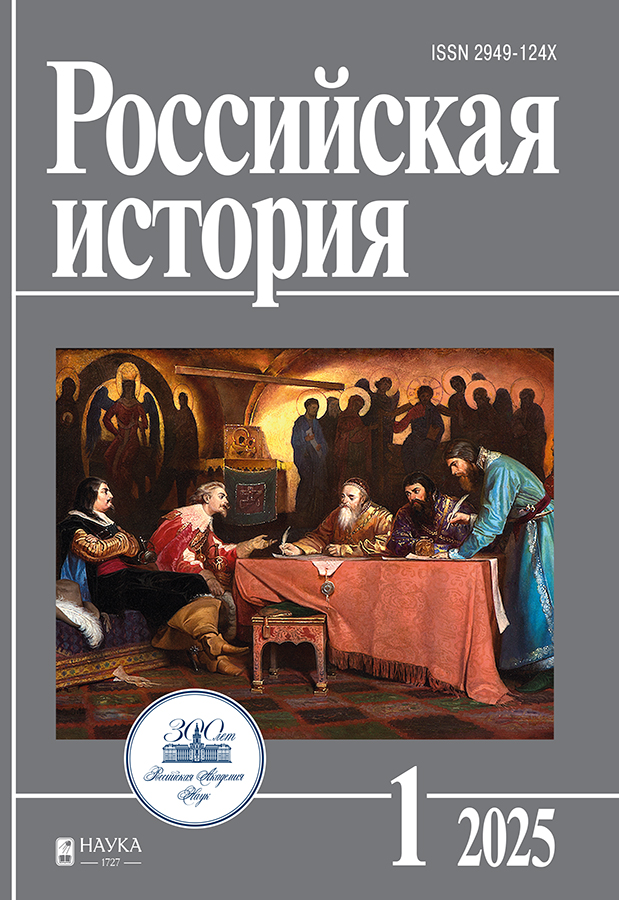Dramatic Censorship during the First World War
- Authors: Bogomolov I.1
-
Affiliations:
- Institute of Scientific Information for Social Sciences of the Russian Academy of Sciences
- Issue: No 1 (2025)
- Pages: 109-126
- Section: History of power
- URL: https://ruspoj.com/2949-124X/article/view/683605
- DOI: https://doi.org/10.31857/S2949124X25010089
- EDN: https://elibrary.ru/AITFTW
- ID: 683605
Cite item
Abstract
The article examines the activities of the censorship of dramatic works in the Russian Empire during the First World War. The article examines the features of the work of dramatic censorship in 1914 - February 1917, its structure, and personnel. During the war, both the number and the subject matter of plays submitted to censorship changed. Based on the instructions of the leadership and their own ideas and views, the censors did not allow many subjects to be staged: the horrors of war, criticism of the allies, ridicule of monarchs (including monarchs of states hostile to Russia), the presentation of Russian officers and soldiers in an "inappropriate" form, anti-war sentiments in the rear. Over time, many domestic political subjects were also added, for example, the unspoken ban on portraying Rasputin on stage. Although formally dramatic censorship existed only in the capital, in fact, local authorities could also act as censors, primarily governors and police chiefs, who could ban any productions by their orders. The old pre-war problems remained: contradictory decisions of censors, their high workload, personnel shortage. The Main Administration for Press Affairs tried to solve these problems, but it was not possible to qualitatively change the situation before the February Revolution.
Full Text
About the authors
Igor Bogomolov
Institute of Scientific Information for Social Sciences of the Russian Academy of Sciences
Author for correspondence.
Email: otech_ist@mail.ru
Cand. Sci. (Hist.), Senior Research Fellow
Russian Federation, MoscowReferences
- Богомолов И.К. Государственная дума и цензурная политика в годы Первой мировой войны // Российская история. 2022. № 4. С. 96-117.
- Бобровиков В.В. Театр и кино в повседневной жизни населения Петрограда в феврале–октябре 1917 года // Вестник Рязанского государственного университета имени С.А. Есенина. 2022. № 2. С. 51–59.
- Гозенпуд А.А. Русский советский оперный театр. (1917–1941): очерк истории. Л., 1963.
- Гордеев П.Н. Государственные театры России в 1917 году. СПб., 2019.
- Иванов А.А. Культурная политика русских правых в начале XX в. // Российская история. 2023. № 6. С. 56–71.
- История советского театра: очерки развития. Л., 1933.
- История советского драматического театра. Т. 1. М., 1966.
- Колоницкий Б.И. «Трагическая эротика»: образы императорской семьи в годы Первой мировой войны. СПб., 2010.
- Королёв Д.Г. Очерки из истории издания и распространения театральной книги в России XIX – начала ХХ веков. СПб, 1999.
- Перекатов А.В. «Чёрные вороны»: конфликт духовенства и театрального сообщества (1907 г.) // Вестник ПСТГУ. Сер. 2. История. История Русской Православной Церкви. 2021. № 98. С. 60–73.
- Ромайкина Ю.С. Сборники «Земля» как «московская вариация» петербургского «Шиповника» // Вопросы литературы. 2021. № 4. С. 215–238.
- Федяхина Е.Г. Драматическая цензура в 1914–1916 гг. // Цензура в России: история и современность: сборник научных трудов. Вып. 8. СПб, 2017. С. 187–196.
Supplementary files










